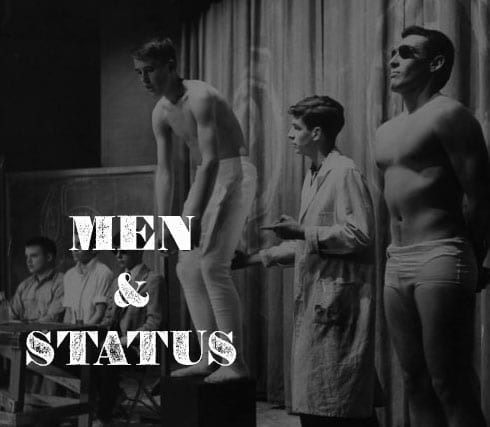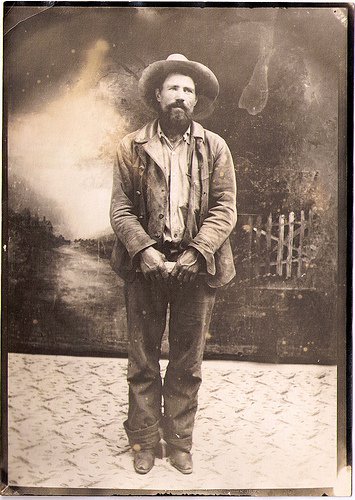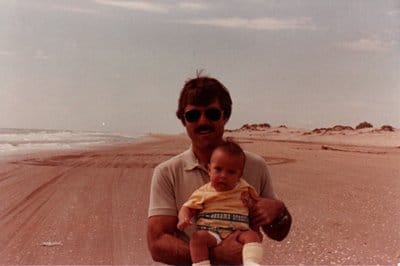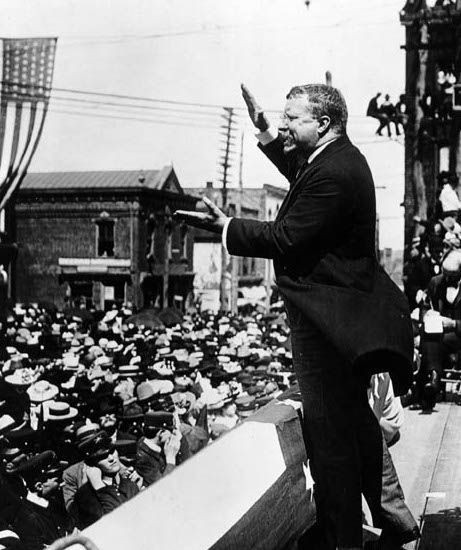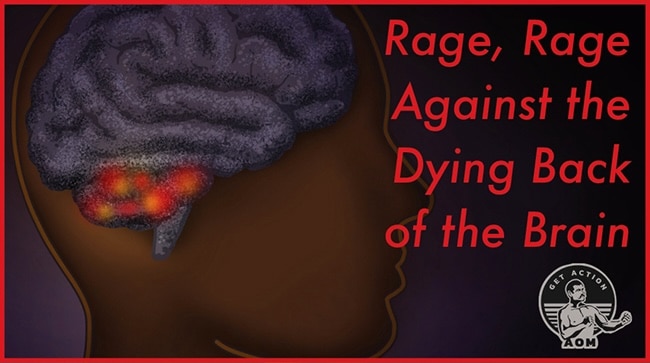
Below is an excerpt adapted from the introduction to Psychology and the Promethean Will by William H. Sheldon, which was published in 1936. Its evocative description of how most people allow themselves to sink into dull, complacent rot in middle-age and inspiring idea of developing an ever-burning “Promethean mind,” has served as a touchstone for us in retaining the will to continue learning, growing, pondering, and seeking as we get older. May it likewise inspire you, to borrow Dylan Thomas’ phrasing, to rage, rage against what Sheldon calls “the dying back of the brain.”
William James used to suggest that even the maturest minds may not yet have developed a tenth of the functional possibilities of the great human forebrain, and later psychologists have shown that if once the habit and the desire are established, expanding horizons and the eager pursuit of knowledge may as readily characterize the later as the earlier decades of life. Yet mental growth is still so rare in the later decades that a matured intellect remains for most people an abnormal conception. The days of youth teem with fragments of living knowledge; with dawning philosophies; morning dreams; plans. But the human mind at forty is commonly vulgar, smug, deadened, and wastes its hours. Everywhere adult brains seem to resemble blighted trees that have died in the upper branches, but yet cling to a struggling green wisp of life about the lower trunk.
There are a few who go on toward full mental growth. At twenty these cannot ordinarily be distinguished from other young men and women. Even at twenty-five no safe prediction can be made; but usually at thirty-five it can be gathered from half a dozen sentences that that here is a mind still growing. Interests are expanding, the philosophy is tentative and sensitive, there is an eagerness for new knowledge, there are visions, dreams, interpersonal enthusiasms. Personalities showing these qualities at thirty-five generally continue their growth throughout the second half of life, not infrequently gathering headway and strength even in the final decade. For such individuals a year in the fifties and sixties is worth in intrinsic feeling value more than a year of youth, when conflicting life desires were still altogether at loggerheads and the future was a jagged welter of hopes and fears. These few live more for the second than for the first half of life. They are happier and stronger in old age than in youth.
Why only so few reach full human consciousness, while thousands of apparently normal personalities all around them abruptly stop growing and go to seed in the second, third, or fourth decade, is beginning to loom as the most important question in human affairs. The observant student of life watches a launching into the world of wave upon wave of young human beings, each in a little flare of heroic parental sacrifice; he follows the childhood years as emerging minds take hold of the world with eager exhilaration; sees the mental flame burn brightly through early youth; feels it flicker a little at about the time of college; and then at last he must stand by helplessly while the young mind struggles in little tragic fits and starts as if caught in the grip of an unseen suffocating force, only to die back in the end to the dull smudge of a coal that did not catch.
The brain seems to develop functionally only to the point just beyond the maintenance of an existence, then hesitates a little, and appears to settle back to a level. It is as if a strong runner were to start a race at his best speed, but upon looking about and finding that all the other runners seem crippled or sick, or carry heavy burdens, hesitates for a little and then drops back to the common pace, only to find after a time that now he too can only crawl. One mind develops where many merely adapt to circumstance. This is the tragedy of the waste of brain.
The Voice of Prometheus
Yet somewhere in the deeper strata of human awareness a voice persists which continually whispers, “No, this is not good enough, there is somewhere something better.” At moments there comes to perhaps every human being a well-nigh painful sense of the nearness of richer and broader human happiness. We deeply feel that some relentless, invisible, yet not quite insurmountable barrier bars the way to an inexpressibly better life. The clearness and vividness of this sense of the better possibility must vary within extremely wide limits in different minds; in some it is a passing, momentary, rare and quite unimportant mood; in some it never breaks through at all to full consciousness. But in a few minds it becomes a dominant mood, and a friend I once knew used to refer to this mood as the hour of the splendid urge. Another always calls it the voice of Prometheus, and minds in which it is dominant he calls Promethean minds.
It is the voice of Prometheus that so often dies away during early middle age.
He who would seek to know the Promethean vision must learn to think in the grooves and patterns of these three traditional disciplines [psychology, religion, and medicine] through which Promethean men and women have tried to meddle with human destiny, thereby to surmount the barrier which seems to block fulfillment of the ancient dream of joining the gods. Yet this alone is not enough. The seeker of Prometheus must also learn to live widely in the world with human heart and searching eyes. He must know the eddies and back currents of life; must feel it all, and love it, if he would throw light upon the Promethean wish, and upon conflict with the antithesis of that wish which causes the dying back of the brain.


